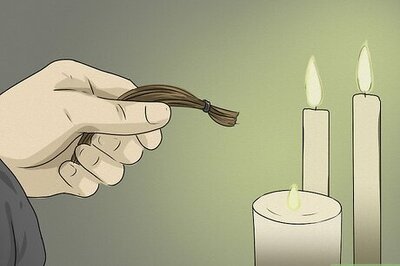
views
KARWAR: The pH level, which measures acid/alkaline balance in solutions, has decreased considerably in the sea around Karwar, and could be the cause for the near extinction of marine life.Dr Ullas Naik, assistant professor in Marine Biology Post Graduate Centre here, who has the data of pH levels in Karwar since 1980, says the level is now below 7 against the ideal level of 88.5 in sea water, posing a threat to the food chain of aquatic life.In places like Majali, it is below 6.4, he says. Levels from 07 on the pH scale indicate acidity, while 714 on the pH scale means the water is alkaline. He says corals can tolerate pH levels upto 8.According to Dr Shivkumar Haragi, an assistant professor at the Marine Biology Centre, chemical and biochemical functions of aquatic ecosystems would be affected if the pH level is less than 7. It would convert the carbondioxide into carbonic acid, thus affecting the calcium cycle in the sea. Obviously organisms like benthos, mussels, oysters, shrimp and clams, which have calcium content, will disappear in such a situation. If the benthos, the micro organisms which live around the sea bed, are destroyed the whole food chain would be affected, he says. He points out that the ratio of benthos and next food rung should always be 10:1.The impact is already visible, asserts Dr Naik. For instance mussels, which were aplenty near Oyster Rock and Kurmagad islands not long ago, are almost extinct now. Research has revealed that clams, which were aplenty in the Kali estuary a few years ago, are rare these days. No microorganism is noticed in the sediment from the sea, the samples of which had been tested, Naik claims.Though the Marine Biology Centre and CMFRI are studying the causes, one of the main reasons for the drop in pH levels is said to be the spillage of iron ore during transportation from the port to the ship, anchored 56 km away and also rain water carrying the spill from the port to the sea during loading and unloading, Dr Naik feels.The iron ore spill would form a mat on the sea bed affecting the benthos, Dr Naik and Dr Shivkumar suspect. Research will cover all angles, including the impact of global warming and oil spills, Dr Naik said.
















Comments
0 comment